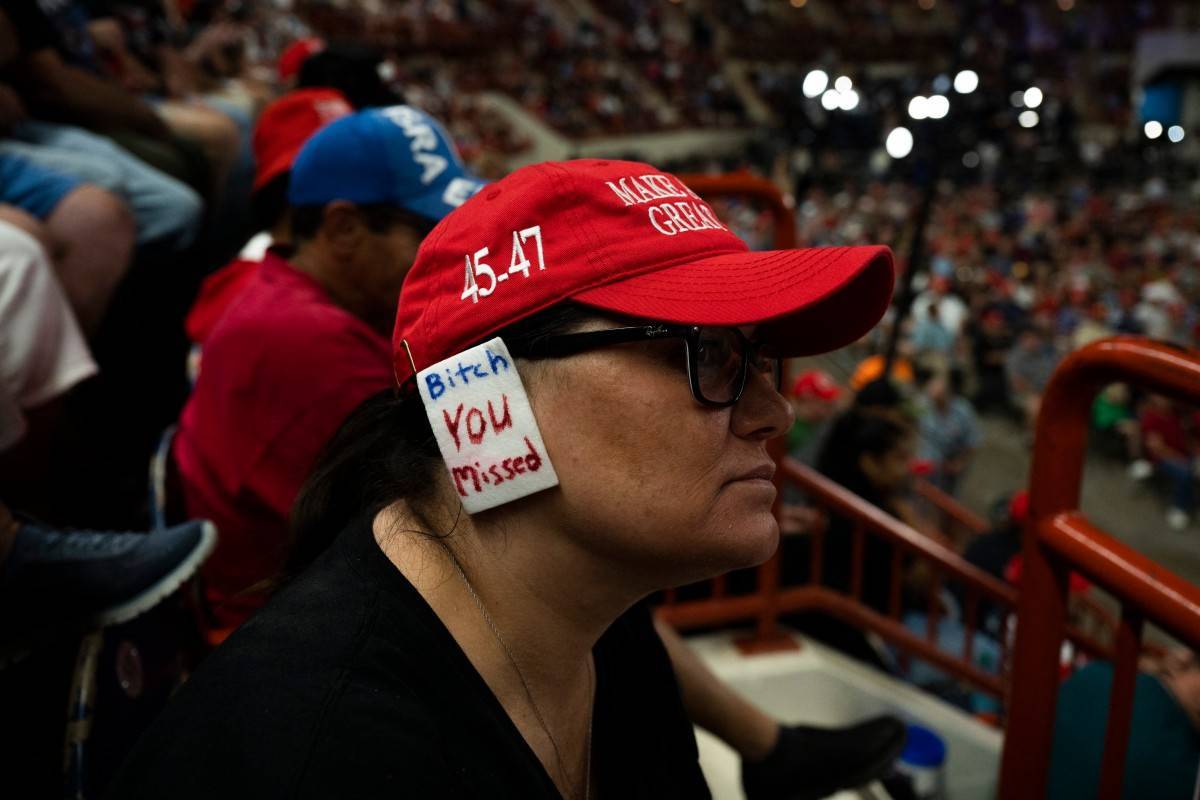With less than a hundred days until the upcoming U.S. presidential election on November 5, Vice President Kamala Harris, the presumed Democratic Party candidate, has managed to narrow the gap with Republican candidate Donald Trump. According to a new Wall Street Journal poll, Trump leads Harris by two points (49-47), a margin within the error range.
However, Harris is ahead by two points (43-41) in a national poll conducted by Reuters/Ipsos, also within the margin of error. In key states, Harris leads Trump in Michigan (+11), Wisconsin, Arizona, and Nevada (+2), while Trump is ahead in Pennsylvania (+4) and North Carolina (+2). The two candidates are tied in Georgia, according to a Bloomberg News/Morning Consult poll.
Harris has secured the support of the majority of Democratic delegates for her candidacy. She is now focusing her efforts on appealing to African American voters, a key group that was instrumental in President Biden's victory. Last Tuesday evening, she held a lively rally in Atlanta, Georgia, where she received significant support. Trump responded by criticizing her ethnicity, claiming that she "recently discovered she was Black" while previously identifying as "of Indian origin."
Trump also plans to visit Atlanta tomorrow for a rally at the same site where Harris addressed a large crowd. He is also targeting African American voters. Trump is also banking on white working-class voters, who narrowly secured him a victory over Hillary Clinton in 2016 before turning to Biden four years later. The choice of J.D. Vance as his running mate may have been motivated by his ability to mobilize this group of voters in Midwestern states.
Harris's campaign raised $200 million in the first week, with two-thirds coming from donors participating for the first time in this election. The campaign has bolstered its ranks with over 170,000 volunteers. An AP-NORC poll indicates that nearly 80% of Democrats are satisfied with her as a candidate, a significant increase compared to Biden's numbers. She plans to announce her running mate before the end of the week to complete the ticket.
The two campaigns offer Americans radically different choices. Economically, Harris proposes progressive measures, including a refundable tax credit of up to $6,000 for middle-class families and raising the corporate tax rate to 35%, after Trump lowered it to 21%. She emphasizes affordable access to healthcare, childcare, and housing, and has proposed legislation to ease rent burdens to help tenants.
Trump focuses on tax cuts, deregulation, and policies favoring the wealthy and large corporations. He seeks to extend the tax reduction law and further cut taxes for the wealthiest. His economic policies have added an additional $9 trillion deficit to the Treasury in four years.
On healthcare, Harris supports a transition to a government-backed healthcare system, similar to Obamacare, while allowing private insurance to coexist. She has proposed measures to lower drug costs by allowing the government to negotiate prices and import cheaper drugs.
Trump, on the other hand, opposes government intervention in healthcare systems and advocates for private market solutions.
On climate change, Harris supports the "Green New Deal" and significant investments in clean energy.
Trump, however, considers the climate change discourse a "great hoax" and calls for increased exploitation and reliance on fossil fuels.
On immigration, Harris advocates for pathways to citizenship for illegal migrants and improving living conditions for migrants, as well as policies to address the root causes of migration in Central America.
Trump takes a hardline stance on immigration, including building a border wall and implementing policies to deter illegal immigration.
The issue of abortion may weigh most heavily in the balance. Harris is a strong advocate for abortion rights and is working to strengthen legislative efforts to protect these rights at the federal level.
Trump supports restrictions and prefers the issue to be handled at the state level, but he seems to be softening his stance on abortion in response to strong opposition from various female voters.
Please post your comments on:
[email protected]
 Politics
Politics








